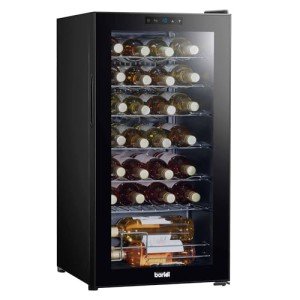The Myths And Facts Behind Fridges

The Comprehensive Guide to Refrigerators: Types, Features, and Maintenance
Fridges, typically referred to as fridges, play a critical role in modern homes by protecting food, reducing waste, and preserving a comfortable living environment. These important kitchen home appliances have developed significantly throughout the years in regards to technology, effectiveness, and design. This article aims to provide a detailed summary of the various kinds of refrigerators, their functions, and ideas for upkeep, making it a vital resource for house owners.
Types of Refrigerators
Fridges come in numerous styles and configurations, each dealing with different requirements and choices. Below is a summary of the most common types of fridges readily available on the market today.
| Kind of Refrigerator | Description |
|---|---|
| Top-Freezer | This is the timeless fridge design where the freezer compartment is found on top. It is normally the most budget-friendly alternative, making it popular for budget-conscious customers. |
| Bottom-Freezer | In this design, the freezer is positioned at the bottom, enabling simple access to fresh items at eye level. This type often features pull-out drawers for simpler company. |
| Side-by-Side | This design has the freezer and refrigerator compartments organized vertically next to each other. It offers easy access to both areas and typically comes with water and ice dispensers. |
| French Door | Integrating the benefits of a bottom-freezer style with broad doors on the refrigerator area, French door fridges provide adequate area and flexibility, making them perfect for large households. |
| Compact | Likewise called mini-fridges, these smaller sized units are best for dormitory, offices, or as secondary refrigerators in homes. They have actually limited storage but are energy-efficient. |
| Smart Refrigerators | Equipped with wise innovation, these fridges use functions such as touch screens, web connectivity, and app controls. Chantal Popken can supply notifications for ended food and other wise functionalities. |
Secret Features to Consider
When picking a refrigerator, it is important to consider different functions that can enhance usability and efficiency. Here are some essential functions to look for:
Energy Efficiency
- Try to find models with an Energy Star score to guarantee energy performance and lowered utility expenses.
Storage Options
- Adjustable shelves, door bins, and specific compartments for fruits and veggies enhance the versatility of storage.
Water and Ice Dispensers
- Many side-by-side and French door designs include integrated water and ice dispensers, offering convenience and motivating hydration.
Temperature Control
- Accurate temperature level control enables house owners to set optimal conditions for different food items.
Smart Features
- Features like touchscreen user interfaces, Wi-Fi connectivity, and built-in cams to help handle grocery stocks make wise fridges attractive.
Sound Levels
- Consider designs with low operational sound, specifically if the kitchen is open to the living location.
Upkeep Tips for Refrigerators
Appropriate upkeep can lengthen the life of a refrigerator and guarantee optimal efficiency. Here are some beneficial upkeep pointers:
Regular Cleaning:
- Clean the exterior and interior surface areas of the fridge with moderate soap and water at least once a month.
- Eliminate spills instantly to avoid smells and germs development.
Temperature level Settings:
- Maintain your refrigerator at a temperature level between 35 ° F to 38 ° F and the freezer at 0 ° F for optimum food preservation.
Examine Door Seals:
- Inspect the door seals periodically for fractures or tears. A faulty seal can result in energy loss and increased electricity costs.
Defrost Regularly:
- For manual defrost models, thaw the freezer when ice develops to minimize the appliance's workload.
Condenser Coils:
- Clean the condenser coils at the back or below the refrigerator every 6 months to enhance performance.
Keep it Level:
- Ensure the refrigerator is level for proper door positioning and to avoid vibrations.
Regularly Asked Questions (FAQs)
1. For how long should a refrigerator last?Typically, a refrigerator can last anywhere from 10 to 20 years, depending on the brand and upkeep practices.
2. How can I improve the energy effectiveness of my refrigerator?To boost energy performance, keep the fridge's temperature settings ideal, regularly clean the condenser coils, and prevent positioning hot food inside.
3. What type of refrigerator is best for little kitchen areas?Compact or counter-depth designs are ideal for little kitchen areas as they offer sufficient storage without inhabiting excessive space.
4. Are wise refrigerators worth the financial investment?Smart fridges can be worth the financial investment if you value convenience and innovation. They use functionalities like inventory management and remote gain access to, which cater to tech-savvy users.
5. How can I repair a refrigerator that is not cooling correctly?Start by inspecting the temperature settings, guaranteeing the condenser coils are tidy, and verifying that the door seals are undamaged. If these do not solve the issue, consider calling a professional service technician.
In conclusion, fridges are essential appliances that play an important function in preserving food and preserving a healthy way of life. With a variety of types and functions available, it is necessary for customers to pick a model that aligns with their specific requirements. By understanding the options and sticking to upkeep best practices, property owners can take pleasure in the benefits of their fridges for several years to come.

